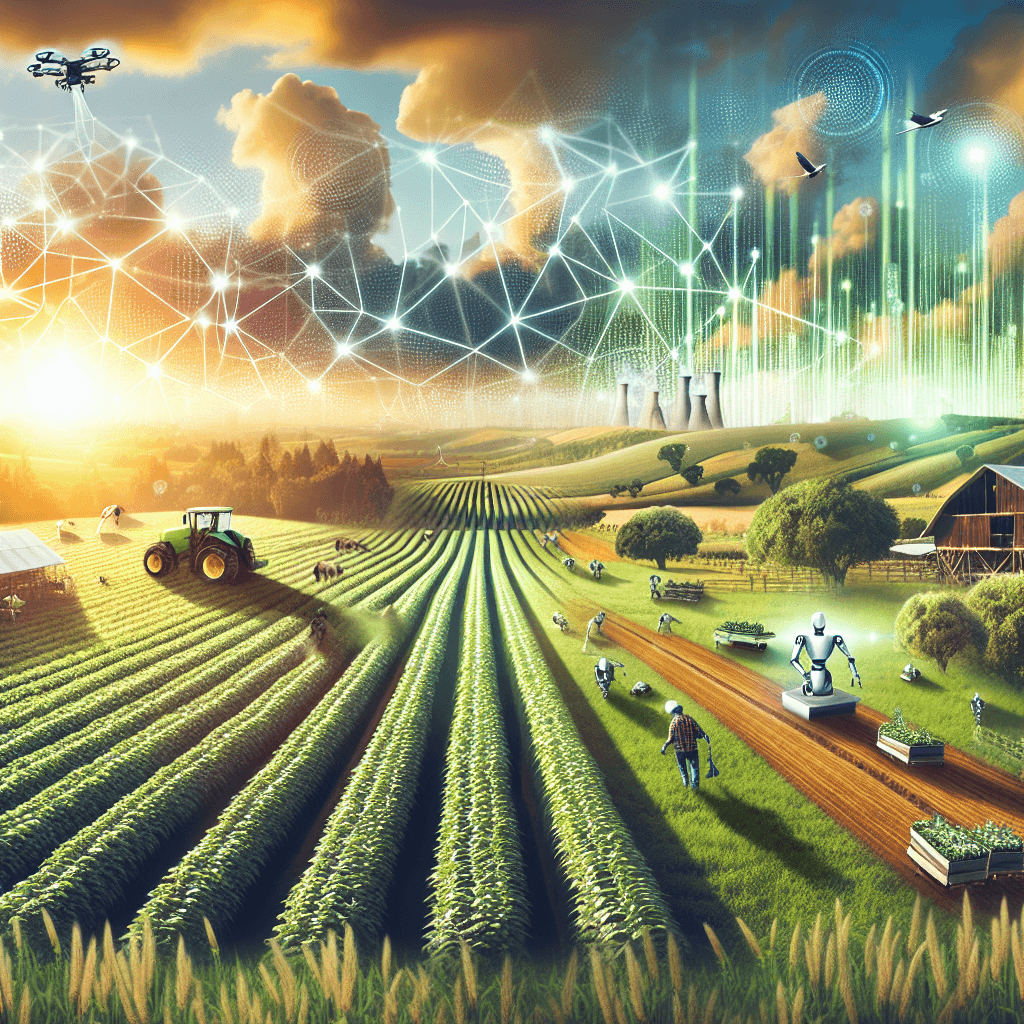In recent years, the integration of Artificial Intelligence (AI) technologies in the agricultural sector has brought about a significant transformation in farming practices. Through applications such as crop monitoring, yield prediction, soil management, pest control, and precision farming, AI has become a powerful tool for optimizing agricultural operations and increasing productivity. The ability of AI algorithms to analyze vast amounts of data and provide actionable insights has revolutionized how farmers make decisions, leading to more efficient and sustainable farming practices. While the benefits of AI in agriculture are immense, including improved crop yields, reduced resource wastage, and minimized environmental impact, there are also challenges to overcome. Issues such as data privacy, the digital divide in access to technology, and the upfront costs of implementing AI solutions can pose obstacles to widespread adoption. However, with advancements in AI technology and increased awareness among farmers, the potential for AI to drive agricultural innovation is enormous. Current technologies like robotic harvesters, drones for crop monitoring, and smart irrigation systems are already making a significant impact on farms worldwide. Looking ahead, future trends in AI in agriculture point towards increased automation, personalized crop management based on real-time data, and enhanced sustainability practices. As AI continues to evolve, its role in shaping the future of agriculture is set to expand, bringing about a new era of smart farming practices.

